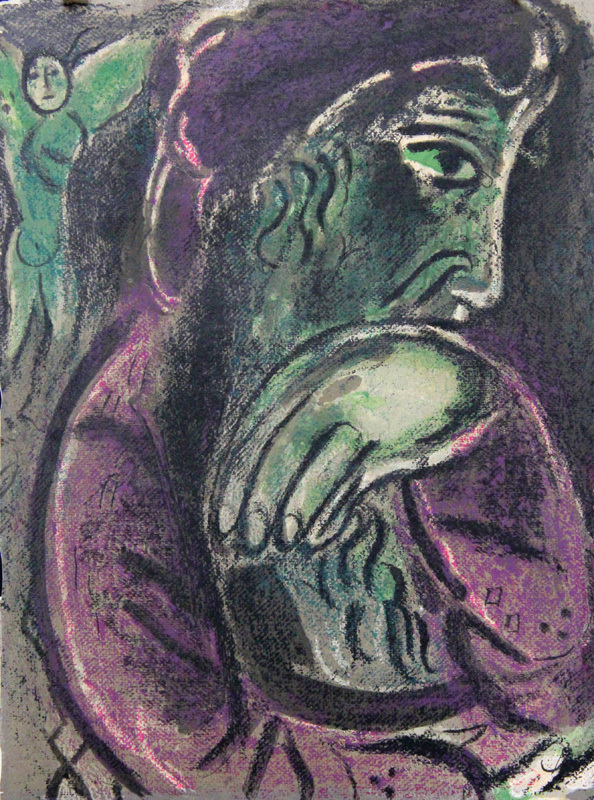As a result of the fall we read about in Genesis 3, the curses were laid, the consequences were spelled out, the garden was closed down, and mankind was consigned to a life of toil and trouble. Thus it can seem that we are just sparks flying upward, born to trouble (Job 5:7). But because God is on the move, we are not doomed to such a fate. Even in the midst of the curses, God plants a seed of hope, that the offspring of woman will crush the head of the serpent. Even as he bars them from Eden, God makes clothes to cover the nakedness Adam and Eve longed to hide.
If only you would hide me in Sheol and conceal me until Your anger passes.If only You would appoint a time for me and then remember me.When a man dies, will he come back to life?If so, I would wait all the days of my struggle until my relief comes.You would call, and I would answer you.You would long for the work of your hands.- Job 14:13-15
Earth, do not cover my blood;
may my cry for help find no resting place.
Even now my witness is in heaven,
and my advocate is in the heights! ...
I wish that someone might arbitrate between a man and God
just as a man pleads for his friend.
- Job 16:18, 19, 21
But I know my living Redeemer,And He will stand on the dust at last.Even after my skin has been destroyed,Yet I will see God in my flesh.I will see Him myself;my eyes will look at Him, and not as a stranger.- Job 19:25-27
Yet he knows the way I have taken;
when He has tested me,
I will emerge as pure gold.
- Job 23:10
I love these verses because they yearn and hope for an advocate who would mediate between humankind and God, for a resurrection in the life beyond this present one. They capture the human longing for life and life abundant. We all long for life to be free and full and boundless, and yet we often find the opposite to be our reality - for now. I find it so powerful to see glimpses of God's future plans even here in this very early book of the Bible. For he will send a mediator; and after he has been overwhelmed by suffering and death, God will restore his flesh even though it has been destroyed; God will long for the work of his hands, and God will once breathe into it and give it new life.








